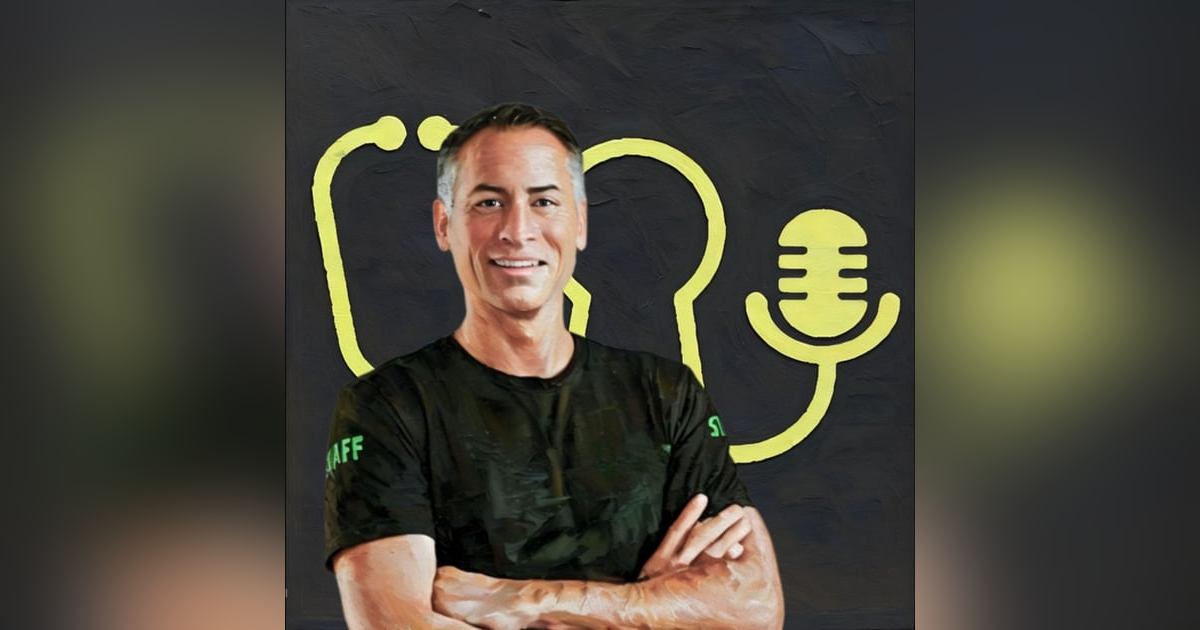#137: Why Emergency Vets Quit (Spoiler Alert: It’s Not What You Think!) With Dr Matt Booth

In this episode, we break down a groundbreaking survey on ER vet retention—uncovering the biggest reasons professionals leave the field and, more importantly, how to keep them.
Our guest, Dr. Matt Booth, reveals the “Five Buckets” that determine whether an ER vet stays or quits: ✅ Leadership(the #1 predictor of retention!)
✅ Schedule flexibility (is a 4-day workweek the answer?)
✅ Professional growth (including alternative board certification paths)
✅ Work culture (how toxic environments drive burnout)
✅ Medical support (not as straightforward as it sound! )
You'll also learn:
🔹 The surprising link between gender disparities and retention.
🔹 How to value your vets beyond what they're billing.
🔹 How mentorship can make or break a hospital’s team
If you’re an ER vet, manager, or industry leader—this episode is a must-listen. Tune in for real solutions to keep veterinary professionals happy, supported, and thriving in their careers.
Most vets believe it’s inevitable—on average, they leave Emergency and Critical Care (ECC) after just 3-5 years. The obvious culprit? Shift work, right?
But what if that’s just scratching the surface?
In this episode, I sit down with Dr. Matt Booth, ER Practice Development Lead at Ethos Veterinary Health, to break down surprising findings from his survey of 3,500 emergency veterinarians. Together, we explore the Five Buckets of Retention—the REAL factors that determine whether your career in emergency medicine thrives or fizzles out. Spoiler: It’s not all about night shifts and burnout.
We dig into leadership challenges, the keys to professional growth, and how these insights apply beyond ECC to every role in veterinary medicine.
You’ll also catch highlights from my previous chat with Dr. Matt at IVECCS 2023, where we shared actionable strategies for improving recruitment and building sustainable veterinary careers.
Whether you’re an ER vet looking for longevity or a practice leader aiming to attract and retain top talent, this episode is your guide to rethinking retention and career sustainability in veterinary medicine.
Topics and Timestamps:
00:40 Meet Dr. Matt Booth and the Five Buckets03:47 Recruitment Insights from 202307:36 Survey Findings and Retention Strategies12:07 The Five Buckets of Retention27:07 The Burden of Being a Giver28:23 Creative Solutions for Employee Retention29:04 Leadership and Gender Representation39:59 The Role of paid time off in Retention43:40 Creating a Positive Work Environment46:37 Professional Educational Growth
Join me at JAVECCS Tokyo on 15 and 16 March, and at IVECCS 2025 in San Diego on 4-8 Septembet.
Join our community of Vet Vault Nerds to lift your clinical game and get your groove back with our up-to-date, easy-to-consume clinical episodes, library of show notes and access to our veterinary practice AI Toolbox at https://hi.switchy.io/podpage-vvn.
Get help with your tricky cases in our Specialist Support Space.
Visit thevetvault.com for show notes and resources related to this episode.
Subscribe to our weekly newsletter here for Hubert's favourite clinical and non-clinical learnings from the week.
- Schedule. Shift work and after-hours work are potential reasons why people leave ER roles. Schedule also includes flexibility and autonomy.
- Opportunities for professional educational growth. Feeling stuck is a common feeling for ER veterinarians.
- Environmental tone/atmosphere. This bucket can also be referred to as culture. Toxic work environments often originate from leadership. An environment where a positive attitude is a high priority is a factor for retention.
- Medical support. Medical support means having someone to call. The needs of a veterinarian in their first year compared to the middle or end of their career are very different.
- Leadership. Leadership is the most important factor and drives a lot of the other buckets. Leadership involves leading the team, asking questions, and being curious. Leaders recognizing the value that ER vets bring to the practice is the most important factor in fostering a work environment conducive to long-term employment.
- The Five Buckets The five buckets that explain 60% of what would retain an ER veterinarian for a long period are schedule, opportunities for professional educational growth, culture, medical support, and leadership.
- Schedule Considerations The schedule bucket incorporates shift work, after-hours work, flexibility and autonomy. Yes, ER vets know what they signed up for but they should still be supported in their need for time off, but flexibility for paid time off (PTO) is an important factor for retention.
- Culture Creating a positive environment where everyone feels valued and respected is key. A positive attitude should be a high priority.
- Leadership Effective leadership involves recognising the value that ER vets bring to the practice, and leadership drives a lot of the other buckets.






